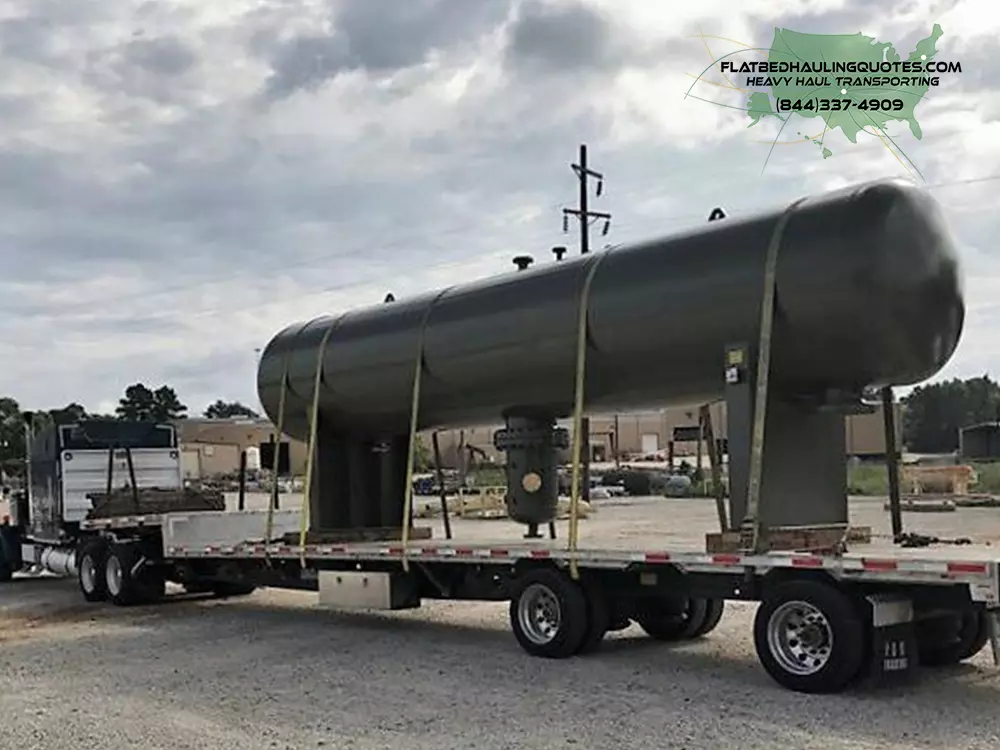
In recent years, Electronic Logging Devices (ELDs) have revolutionized the transportation industry, affecting flatbed freight companies in significant ways. As we delve into the world of heavy haul transporting, this blog post will explore the impact of ELD mandates on flatbed freight carriers, discuss security challenges and solutions, delve into sustainability initiatives, highlight technological advancements, predict industry trends for 2023, and examine the vital role flatbed freight plays in the construction and infrastructure sectors.
Electronic Logging Devices (ELDs) and Flatbed Freight Companies
Electronic Logging Devices (ELDs) have transformed the operations and compliance of flatbed freight companies. ELDs are digital systems that track a commercial driver’s hours of service (HOS) electronically. By replacing paper logbooks, ELDs have enhanced accuracy and transparency in reporting, but they also pose challenges to the industry.
Flatbed freight carriers must adhere to strict HOS regulations enforced by ELDs, which may affect delivery schedules and operational flexibility. However, ELDs also promote safety, reduce the risk of driver fatigue, and enhance overall compliance.
Challenges and Solutions for Flatbed Freight Security
Flatbed freight carriers face unique security challenges when transporting oversized or specialized cargo. These challenges include load shifting, cargo theft, and damage during loading and unloading. To mitigate these risks, flatbed freight companies employ a range of solutions and best practices, such as load securement training, advanced security systems, and route planning to avoid high-crime areas.
Sustainability in Flatbed Freight: Green Initiatives and Practices
In an era of increasing environmental awareness, flatbed freight companies have embraced eco-friendly initiatives to reduce their carbon footprint. They often invest in fuel-efficient equipment, implement aerodynamic technologies, and explore alternative fuels. These sustainable practices not only benefit the environment but also help companies save on fuel costs.
The Role of Technology in Modernizing Flatbed Freight Operations
Technology plays a pivotal role in modernizing flatbed freight operations. GPS tracking enables real-time monitoring of cargo, while AI algorithms optimize routes and predict maintenance needs. Automation streamlines loading and unloading processes, reducing labor costs and improving efficiency. Furthermore, flatbed step deck trailers equipped with load levelers enhance safety and stability during transport.
Flatbed Freight Shipping Trends: What to Expect in 2023
Looking ahead to 2023, several trends are expected to shape the flatbed freight industry. These include increased demand for heavy vehicle road transport, the transport of oversized equipment, and the growth of long haul freight trucking companies. These trends are influenced by factors such as construction and infrastructure development, renewable energy projects, and the need for transporting wind turbines and other heavy industrial equipment.
The Role of Flatbed Freight in Construction and Infrastructure Development
Flatbed freight services are indispensable for the growth of the construction and infrastructure sectors in the USA. They facilitate the transportation of oversized loads, equipment, and materials to construction sites. From transporting a forklift to shipping wide loads for large-scale projects, flatbed freight companies are instrumental in ensuring the timely delivery of essential resources.
Real-Life Case Example: Shipping Oversized Cargo Across State Lines
In a recent case, a Pennsylvania-based flatbed heavy hauler was tasked with transporting a wind turbine from Pennsylvania to a construction site in Ohio. This oversized load transport required meticulous planning, adherence to state-specific regulations, and coordination with local authorities.
The challenges faced included securing the massive wind turbine components, navigating varying road conditions, and ensuring compliance with ELD mandates. To address these challenges, the heavy haul transport company utilized specialized equipment, conducted route surveys, and collaborated closely with ELD experts to optimize HOS compliance.
By leveraging their expertise in heavy equipment hauling and working with step deck load levelers, the transport was successful, highlighting the importance of experience and innovation in heavy haul transporting between states in the USA.
In conclusion, ELD mandates have reshaped the landscape of flatbed freight companies, and the industry continues to evolve to meet the demands of a changing world. From enhancing security to embracing sustainability, leveraging technology, predicting trends, and contributing to construction and infrastructure development, flatbed freight companies are crucial players in the heavy haul transport sector.
For expert heavy haul transport solutions, visit Heavy Haul Transporting or call (800) 579 4258 today.
